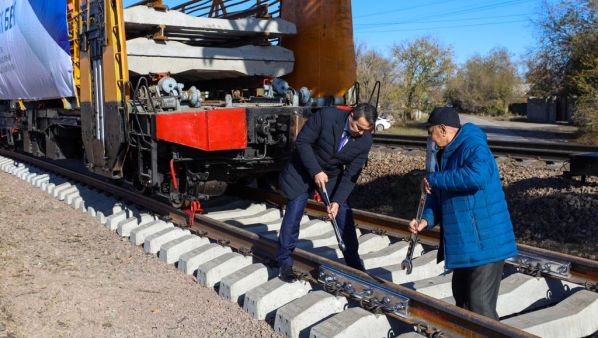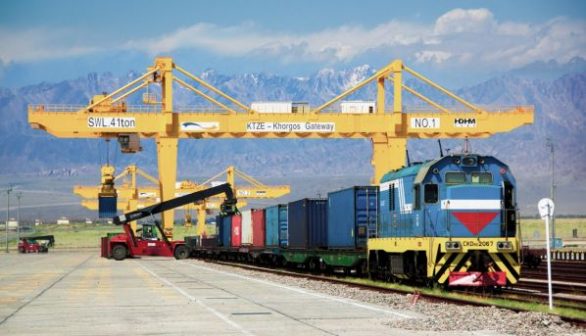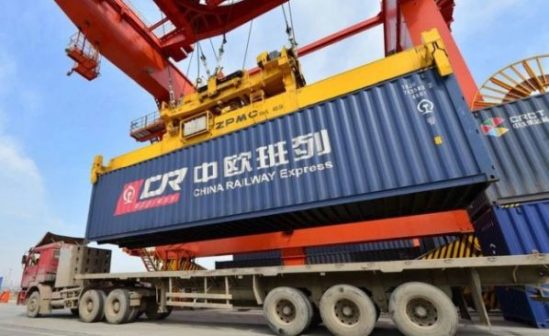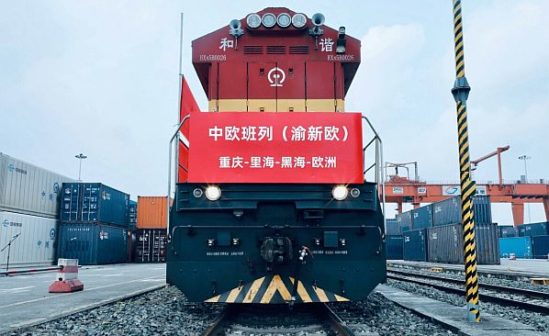KAZAKHSTAN Railways (KTZ) has begun construction of a line that will bypass the country’s largest city, Almaty, to support steadily growing trans-Eurasian rail freight volumes.
The new 130km, 1520mm-gauge line will run north of Almaty between Zhetygen in the northeast and Kazybek Beka in the northwest.
The cost of the new line has not been disclosed, but KTZ has provided some details that could give an idea of the scale of the project: it will require 228,000 sleepers, 16,000 tons of rail, and the construction of three switches, 13 bridges, five rail overpasses, and one road crossing. The planned completion date has not been disclosed either.
As Kazakhstan’s prime minister Mr Alikhan Smailov ceremonially laid the first link of the new Almaty bypass line on November 14, KTZ also reiterated its intentions to open a new railway connection with China by building a branch line from the Almaty-Pavlodar line to the Chinese border, between Ayagoz and Bakhty. Meanwhile, the existing connection further south, between the border town of Dostyk and Moyntyy - which ultimately connects China with the capital Astana - will be track doubled, with completion expected by 2025.
The east-to-west line through southern Kazakhstan currently makes a “U”-shaped detour to Almaty, and while both the city’s freight terminals and passenger stations are only within a few kilometres of the city’s international airport, they are already running well above their capacity. Both are also located in the middle of Almaty’s northern residential outskirts, making expansion there difficult, even though several Chinese companies are collaborating with Kazakhstan to build new rail logistics facilities in Almaty.
Soaring e-commerce in recent years has driven this growth in rail freight volumes, but the main booster is grain. China has quadrupled its imports of Kazakh grain over the last year, and KTZ believes these will double again by next year. That would mean that 2.2 million tonnes of Kazakh grain would have to be transported to China during 2024.
Moreover, the line through Almaty is one of two main lines that form Kazakhstan’s part of the Trans-Caspian International Transport Route, which connects the industrial eastern and central China with Europe through Turkey and the Caspian and Black Seas. This route has become an increasingly important part of China’s Belt and Road Initiative (BRI) following Russia’s invasion of Ukraine, as European sanctions require freight to be diverted from Russia. In addition, if and when those sanctions are lifted, traffic is likely to increase along the Turkestan-Siberia railway, which connects central Russia with Iran and the Persian Gulf - a line that also currently runs through Almaty.
For detailed data on rail projects in Asia, subscribe to IRJ Pro.




